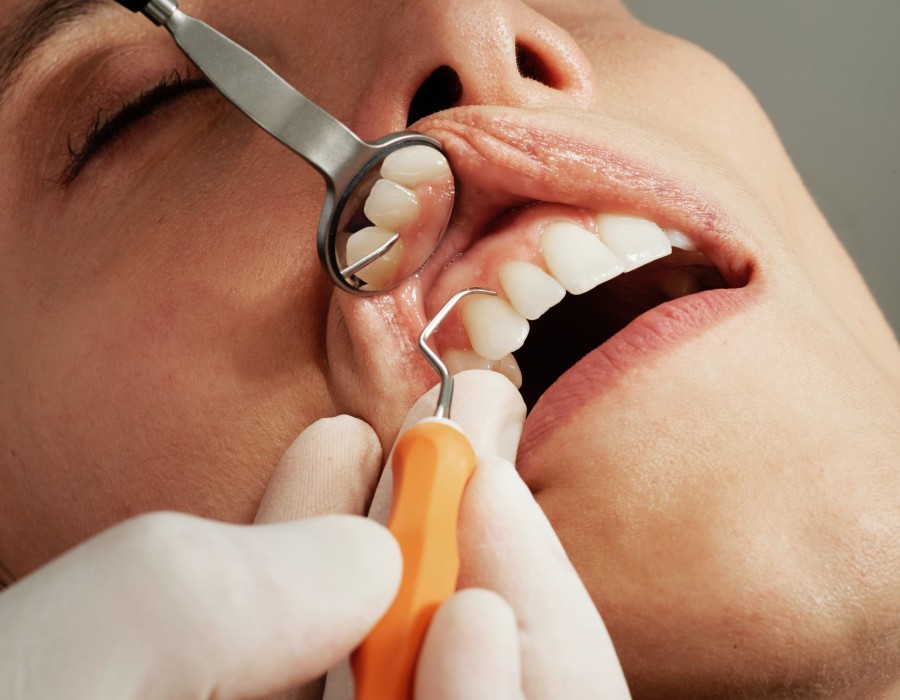Understanding the importance of regular dental visits is essential when it comes to maintaining a healthy mouth, and it forms the foundation of general dentistry basics. Routine dental checkups help identify problems early, prevent tooth decay and gum disease, and maintain overall oral hygiene. General Dentistry focuses on prevention and long-term maintenance, making these regular appointments a key part of your healthcare routine. Skipping dental visits often leads to more complex and costly treatments down the line.
What Happens During a Routine Dental Visit?
A typical dental appointment involves a combination of preventive care, diagnostics, and patient education. The procedures performed during a regular visit are designed to ensure that your teeth, gums, and mouth remain in optimal condition. You can expect:
- Professional cleaning: A hygienist removes plaque and tartar buildup that brushing alone can't eliminate
- Dental examination: The dentist checks for signs of cavities, gum disease, oral cancer, and other issues
- X-rays if needed: These images help detect problems not visible during the exam, like cavities between teeth or bone loss
- Discussion of oral hygiene habits: Personalized advice is given based on your brushing, flossing, and dietary habits
- Preventive treatments: Fluoride applications or sealants may be offered to help protect your teeth
Each visit helps identify concerns early and keeps your oral health on the right track.
Why Regular Visits Prevent Bigger Problems?
One of the main reasons general dentistry emphasizes regular visits is because early detection prevents serious problems from developing. Skipping appointments might not seem like a big deal, but over time, small issues can escalate. Regular dental visits help:
- Catch cavities before they grow: Small cavities are easy to fix, but left untreated, they can lead to root canals or extractions
- Identify gum disease early: Gingivitis, the early stage of gum disease, is reversible, but if ignored, it can progress to periodontitis
- Monitor changes in your oral health: Dentists track shifts in bite, wear on teeth, or new sensitivities
- Detect oral cancer signs early: Quick intervention can be lifesaving when abnormal tissues are spotted early
By staying consistent with visits, you reduce your chances of facing dental emergencies or expensive procedures.
General Dentistry for All Ages:
General dentistry is not limited by age; it’s crucial for children, adults, and seniors alike. These visits evolve with your dental needs as you age, offering tailored care for every life stage. Here's how it supports different age groups:
- Children: Learn proper brushing habits, monitor tooth development, and receive protective treatments like sealants
- Adults: Manage stress-related issues like grinding, address cosmetic concerns, and maintain strong enamel
- Seniors: Handle tooth wear, gum recession, dry mouth, and monitor for health-related dental complications
Because oral health changes with age, general dentists are trained to adapt treatment plans accordingly, ensuring lifelong care.
The Role of General Dentists in Preventive Care:
General Dentistry Treatment do more than fix problems—they’re partners in preventive care and overall well-being. By attending regular visits, you allow your dentist to:
- Track your health history: Conditions like diabetes and heart disease can affect and be affected by oral health
- Offer custom guidance: Lifestyle advice, including quitting smoking or managing diet, supports both dental and general health
- Create long-term treatment plans: Strategic care planning reduces the risk of recurring issues
- Build trust and reduce dental anxiety: Familiarity with your provider leads to a more comfortable experience and better communication
Prevention is the heart of general dentistry, and your dentist plays a key role in keeping you one step ahead of any potential problems.
Making Dental Visits a Regular Habit:
To truly benefit from the importance of regular dental visits, consistency is key. Establishing a habit of biannual visits creates a proactive routine that protects your smile. Tips to stay consistent include:
- Schedule your next appointment before leaving the clinic: This ensures your check-up is already in your calendar
- Use reminders: Set phone alerts or use dental office apps to stay on track
- Understand the value: Think of each visit as an investment in your overall health and well-being
- Make it a family event: Book appointments for everyone at once to build a shared commitment to oral health
- Talk to your dentist about fears or concerns: Open communication helps ease anxiety and builds trust
With a little effort and the right mindset, regular dental visits become second nature, supporting a lifetime of healthy smiles.





Comments